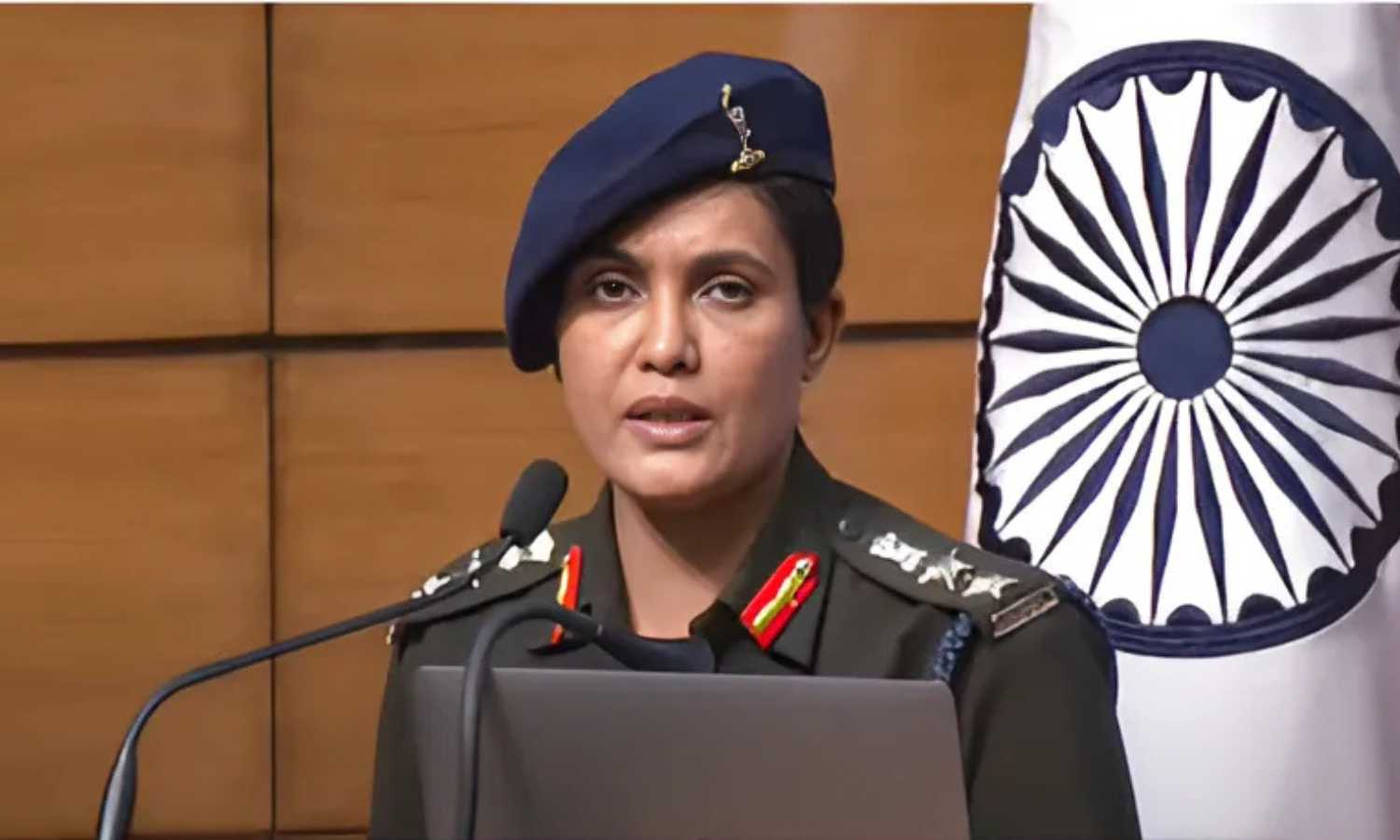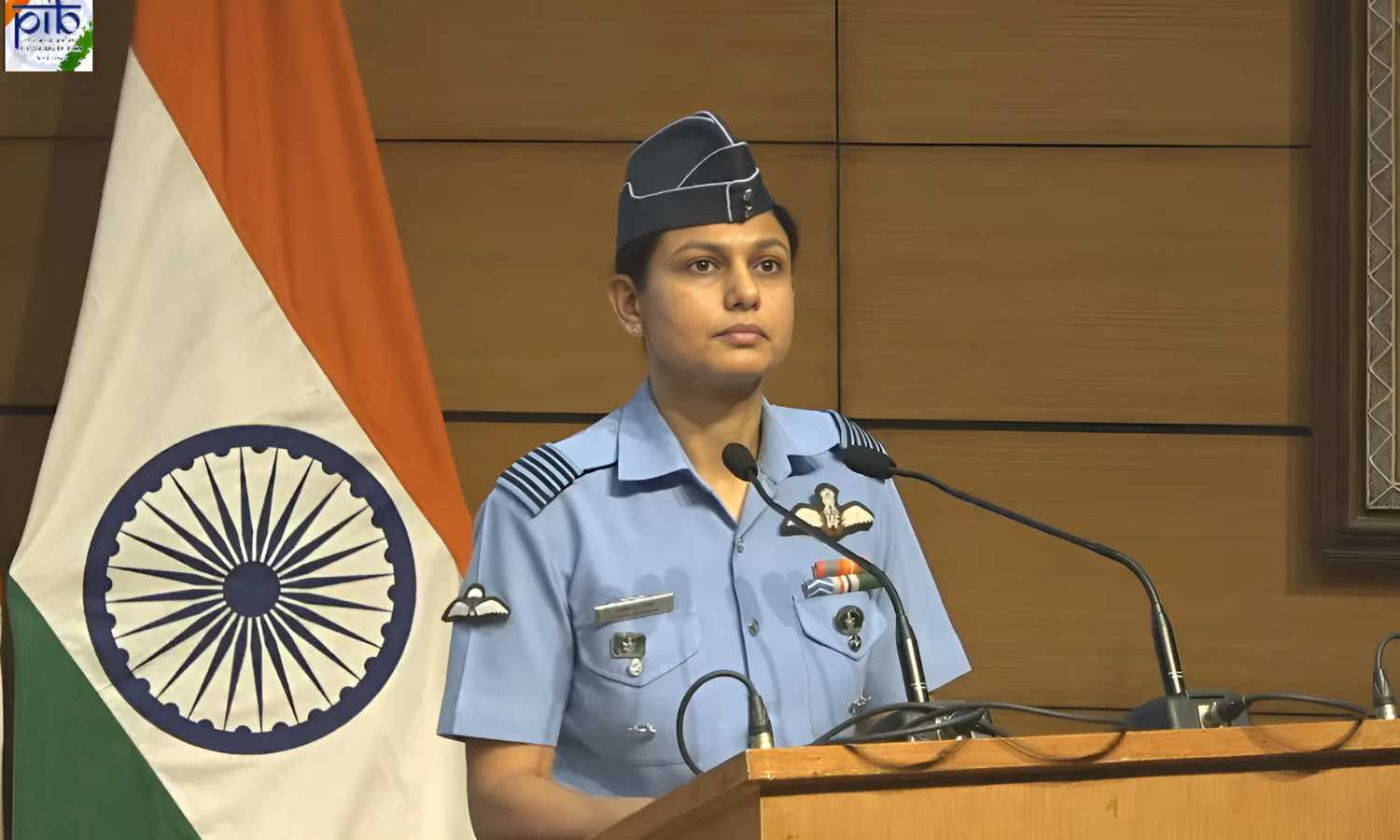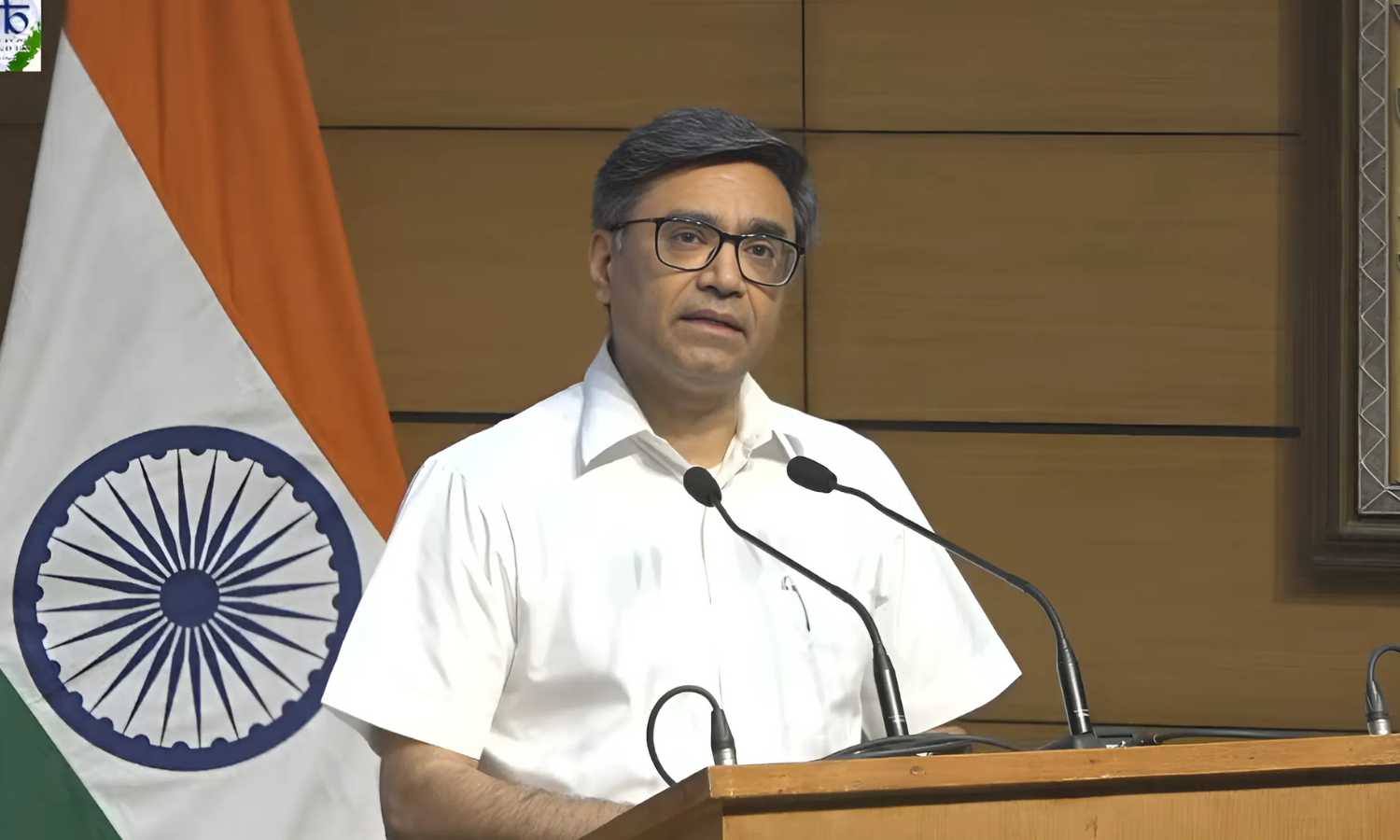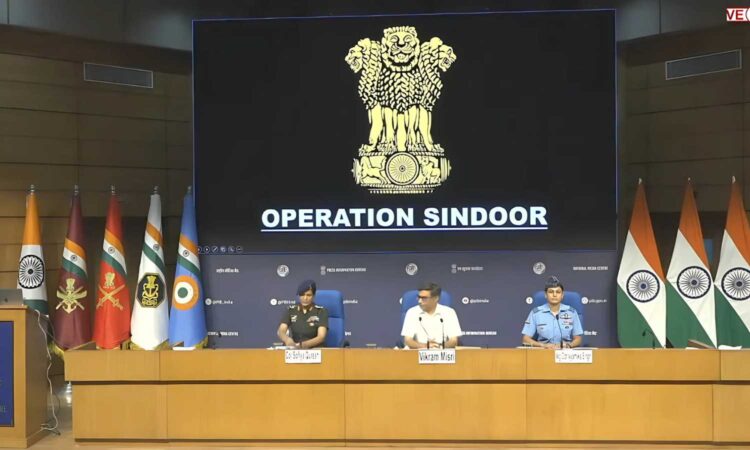New Delhi: India confirmed on Wednesday that it had carried out precision air strikes on multiple terror camps across Pakistan and Pakistan-occupied Kashmir (PoK), in a military operation code-named ‘Operation Sindoor’ prompted by the recent killings of civilians in Pahalgam. The announcement was made during a high-level joint media briefing addressed by the Indian Army, Air Force, and Ministry of External Affairs.
The briefing, held at 10:30 a.m., began with the screening of a two-minute video showing visuals from the operation. Officials revealed that nine terrorist targets were destroyed in the strikes conducted between 1:04 a.m. and 1:11 a.m. on the intervening night of Tuesday and Wednesday. While the strikes took just seven minutes, the total duration of the operation was 25 minutes.
This is the first time in Indian military history that two senior women officers—Colonel Sophia Qureshi from the Army and Wing Commander Vyomika Singh from the Air Force – jointly presented details of a cross-border strike. They were accompanied by Foreign Secretary Vikram Misri.

Colonel Qureshi confirmed that the operation was executed in retaliation for the “ruthless” killing of innocent tourists in Pahalgam on April 22. She said India had identified and destroyed nine terror-related installations across Pakistan and PoK. The targets included active launchpads and training centres used by groups such as Lashkar-e-Taiba, Jaish-e-Mohammed, and Hizbul Mujahideen.
Qureshi said the operation was conducted between 1:05 a.m. and 1:30 a.m., and that Indian forces acted on verified intelligence, ensuring that civilian infrastructure and innocent lives were not affected. She underlined that the sites had been under surveillance and were selected based on credible information.
The first strike in PoK hit the Sawai Nala training camp in Muzaffarabad, where militants involved in the Sonmarg, Gulmarg, and Pahalgam attacks were trained. Another key location in Muzaffarabad, the Syedna Bilal camp, was targeted for providing training in arms, explosives handling, and jungle survival.
In Kotli’s Gurpur area, a Lashkar-e-Taiba camp linked to the 2023 Poonch pilgrimage attack was also struck. Inside Pakistan, India targeted the Sarjal camp in Sialkot, where militants involved in the March 2025 killing of police personnel had received training.
Another site in Sialkot, the Mehmuna Jaya camp, associated with Hizbul Mujahideen, was targeted for its role as a control centre for operations in Kathua. This camp was also linked to the planning of the 2016 Pathankot attack.
The strikes further included the Markaz Tayyaba complex in Muridke, known to have trained Ajmal Kasab and David Coleman Headley. In Bahawalpur, India hit the Markaz Subhanallah headquarters, a Jaish-e-Mohammed facility used for recruitment, training, and as a meeting ground for senior operatives.

Foreign Secretary Vikram Misri stated that the Pahalgam attack was a “cowardly” act where victims were shot in the head in front of their families. Survivors were then ordered to spread the message of terror. Misri said that over 22 million tourists visited Kashmir last year, and such attacks were aimed at reversing the region’s progress and damaging its image as a peaceful destination.
He also warned that the nature of the Pahalgam killings indicated an intent to ignite communal tensions across Jammu & Kashmir and the rest of the country. A group calling itself The Resistance Front (TRF), which is banned by the United Nations and known to be affiliated with Lashkar-e-Taiba, claimed responsibility for the assault.
Misri said TRF served as a front for Pakistan-based terrorist networks. Intelligence gathered during the investigation into the Pahalgam killings exposed direct links between the attackers and handlers based in Pakistan. He added that online posts from TRF and Lashkar further confirmed this connection.
The attackers in Pahalgam have now been identified, and the operation has revealed Pakistan’s continued role in cross-border terrorism. Misri asserted that Pakistan had become a hub for terrorist activities and that the global community, including the United Nations, had previously called for accountability of those involved in such acts.

He emphasised the necessity of bringing both the perpetrators and planners of the April 22 attack to justice, stating that Pakistan has consistently denied responsibility and resorted to counter-accusations. He also noted that India had taken appropriate diplomatic steps in response.
“We had intelligence that these terror camps were planning further attacks. It was essential to act. We exercised our right to prevent those attacks,” Misri said. He described the military response as calibrated, precise, and in line with international norms.
OPERATION SINDOOR#JusticeServed
Target 1 – Abbas Terrorist Camp at Kotli.
Distance – 13 Km from Line of Control (POJK).
Nerve Centre for training suicide bombers of Lashkar-e-Taiba (LeT).
Key training infrastructure for over 50 terrorists.DESTROYED AT 1.04 AM on 07 May 2025.… pic.twitter.com/OBF4gTNA8q
— ADG PI – INDIAN ARMY (@adgpi) May 7, 2025










